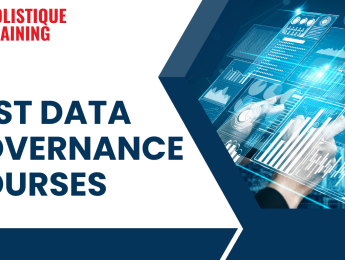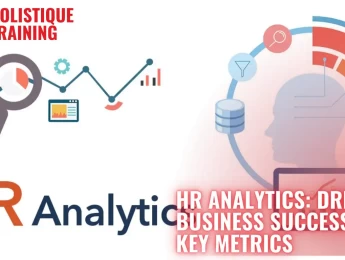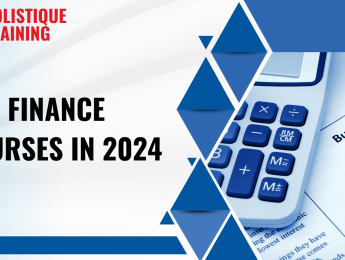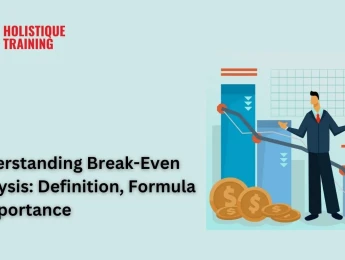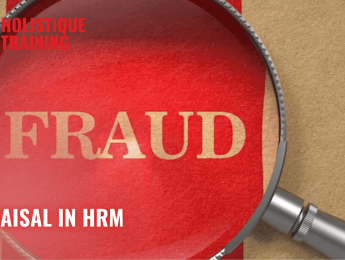Introduction
Data governance is the systematic management of data assets to ensure their availability, integrity, usability, and security within an organization. It involves establishing clear policies, procedures, and responsibilities for managing data throughout its lifecycle. By implementing effective data governance practices, organizations can enhance data quality, facilitate regulatory compliance, improve decision-making processes, and foster trust in data-driven insights. This proactive approach not only mitigates risks associated with data misuse or breaches but also enables businesses to leverage their data as a strategic asset to drive innovation and achieve operational excellence in today's competitive landscape.
Data Governance and Management - University of Washington
- Summary: This course covers key data governance concepts and best practices, focusing on building a data governance framework, data stewardship, and data quality management.
- Duration: 3 months (estimated 6-8 hours per week)
- Language: English
- Level: Intermediate
What does a Data Governance and Management Course teach you? This course teaches key concepts and best practices in data governance, focusing on building frameworks, data stewardship, and managing data quality.
Who should take the Data Governance and Management course? Professionals who are involved in or responsible for managing data within organizations, including data managers, analysts, and IT professionals, would benefit from this course.
Why should you take the Data Governance and Management course? Taking this course will help you develop a solid understanding of how to establish and maintain effective data governance practices, ensuring data integrity, compliance, and optimal use within your organization.
Data Governance in Practice Specialization - Coursera
- Summary: Offered by the University of Virginia, this specialization includes courses on data governance foundations, data stewardship, and the application of governance frameworks in organizations.
- Duration: 4-5 months (estimated 3 hours per week)
- Language: English
- Level: Intermediate
What does a Data Governance in Practice Specialization teach you? This specialization covers foundational concepts of data governance, principles of data stewardship, and practical application of governance frameworks in organizational settings.
Who should take the Data Governance in Practice Specialization? Professionals aspiring to enhance their understanding and implementation skills in data governance, including data architects, compliance officers, and business analysts, would find this specialization valuable.
Why should you take the Data Governance in Practice Specialization? This specialization equips you with comprehensive knowledge and practical skills necessary to effectively implement data governance frameworks, enhancing data management practices and organizational compliance.
Data Governance and Stewardship Professional (DGSP) - eLearningCurve
- Summary: This certification program focuses on data governance principles, metadata management, data quality, and the roles and responsibilities of data stewards.
- Duration: Self-paced (approximately 45 hours of content)
- Language: English
- Level: Advanced
What does a Data Governance and Stewardship Professional (DGSP) course teach you? This certification program focuses on advanced topics such as data governance principles, metadata management, data quality, and the roles/responsibilities of data stewards.
Who should take the DGSP course? Experienced professionals in data management and governance, including data stewards, data governance managers, and compliance officers, would benefit from pursuing this certification to deepen their expertise.
Why should you take the DGSP course? Taking the DGSP course will enable you to gain specialized knowledge and skills essential for implementing robust data governance strategies, enhancing data quality, and effectively managing data assets within complex organizational environments.
Fundamentals of Data Governance - Edureka
- Summary: This course provides foundational knowledge in data governance, focusing on creating and applying a comprehensive framework for data integrity, security, and compliance.
- Duration: 1-4 weeks (self-paced)
- Language: English
- Level: Beginner
What does a Fundamentals of Data Governance course teach you? This course provides foundational knowledge in data governance, emphasizing the creation and application of frameworks for data integrity, security, and compliance.
Who should take the Fundamentals of Data Governance course? Individuals new to data governance or seeking to establish a strong foundational understanding, including entry-level data analysts, IT professionals, and business managers, would find this course beneficial.
Why should you take the Fundamentals of Data Governance course? Taking this course will equip you with essential skills and knowledge necessary to implement effective data governance practices, ensuring data security, compliance with regulations, and improved organizational decision-making.
Data Governance & Compliance Management - Holistique Training
- Summary: This course ensures proficiency in GDPR stipulations and data governance best practices. It covers enhancing data management efficiency to address privacy, data protection, and cybersecurity, formulating a Business Continuity Plan, and conducting thorough data privacy audits. Participants will learn to identify and implement data governance measures, devise strategies for compliance and audits, and establish Data Governance initiatives. The course emphasizes adherence to international standards like ISACA and ISO 8000.
- Duration: 5 days
- Language: English
- Level: Intermediate to Advanced
What does a Data Governance & Compliance Management course teach you? This course focuses on GDPR stipulations, data governance best practices, data management efficiency, privacy protection, cybersecurity, and compliance auditing.
Who should take the Data Governance & Compliance Management course? Professionals involved in managing data privacy, compliance, and cybersecurity within organizations, including data protection officers, compliance managers, and IT security professionals, would benefit from this course.
Why should you take the Data Governance & Compliance Management course? Taking this course will enable you to enhance your expertise in implementing data governance measures aligned with international standards, ensuring regulatory compliance, and mitigating risks associated with data breaches and privacy violations.
Table: Summary ofBest Data Governance Courses
Course Name | Provider | Duration | Language | Level |
Data Governance and Management | University of Washington | 3 months (6-8 hours/week) | English | Intermediate |
Data Governance in Practice Specialization | Coursera | 4-5 months (3 hours/week) | English | Intermediate |
Data Governance and Stewardship Professional (DGSP) | eLearningCurve | Self-paced (45 hours) | English | Advanced |
Fundamentals of Data Governance | Edureka | 1-4 weeks (self-paced) | English | Beginner |
Data Governance & Compliance Management | Holistique Training | 5 days | English | Intermediate to Advanced |


